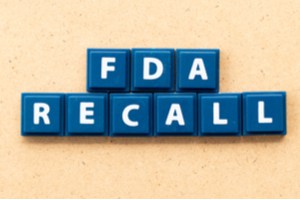Free Case Evaluations with Belviq Recall Lawyers
Belviq (lorcaserin) was first approved by the FDA in 2012, as a prescription weight loss drug for those who were unable to lose weight through diet and exercise. The active ingredient was supposed to give users the feeling of being full, and thus curb their appetite. However, side effects of Belviq may increase the risk of cancer.
- Used Belviq or Belviq XR for weight loss since 2012;
- Continued to use the medication for at least one month; and
- Diagnosed with Pancreatic Cancer, Colorectal Cancer, Lung Cancer, Breast Cancer or another malignant tumor caused by Belviq
Although it appears that the manufacturers knew or should have known about the Belviq cancer risk for years, information has been withheld from consumers, regulators and the medical community. As a result, users may now be entitled to substantial financial compensation and settlements.
Our Belviq recall lawyers provide free consultations and case evaluations to help former users and family members understand their legal rights. All cases are handled on a contingency fee basis, which means that there are never any out-of-pocket costs to hire our law firm and we only receive an attorney fee or expenses if we are successful obtaining a recovery for you and your family.
Belviq Recall: February 2020
At the time Belviq was introduced in 2012, the FDA required the diet drug maker to conduct post-marketing studies to better evaluate the potential side effects. While the studies were intended to evaluate the Belviq risk of heart problems, data suggested that the medication may actually increase the risk of cancer.
Belviq (lorcaserin) was designed to promote weight loss by causing users to experience feelings of fullness and thus curb their appetite. However, there have been serious concerns about the safety of Belviq, which were not adequately disclosed by the drug maker.
At the time it was approved, some Belviq studies linked the weight loss drug to an increased risk of cancer and tumors in rats. The FDA approved the medication, but required the drug maker to conduct further studies to evaluate the side effects after it was already on the market.
Shortly after it was first sold, the prominent consumer advocacy group Public Citizen issued warnings about the potential Belviq heart side effects in June 2012, indicating that the medication was likely dangerous and accurately predicting that Belviq would be recalled within a few years.
In early 2020, the FDA warned that data from the post-marketing clinical trials suggested that there may be a Belviq cancer risk. The study involved 12,000 individuals followed over a period of five years.
According to the findings, more patients taking Belviq were diagnosed with cancer than those given a placebo. The cancers detected included:
- Pancreatic Cancer
- Colorectal Cancer
- Lung Cancer
On February 13, 2020, the FDA called for the manufacturer to remove Belviq from the market after determining that the cancer risks outweigh any potential weight loss benefits. Users were told to stop taking the drug and safely dispose of the pills, and the manufacturer issued a Belviq recall in response.
It now appears clear that the drug maker ignored clear signs about the Belvic cancer problems and placed the desire for profits before consumer safety by marketing a weight loss drug that was not adequately researched or studied.
For eight years, consumers were encouraged to take Belviq to help lose weight and improve their overall health. Many cases of cancer and wrongful death may have been avoided if false and misleading information had not been provided by the drug maker.

Timeline of Belviq Issues
June 2012
FDA approves Belviq (lorcaserin) for approval for sale, despite concerns over tumors in rats.
June 2012
Public Citizen issues a warning predicting Belviq will be recalled due to heart concerns.
2013
Arena Pharmaceuticals begins marketing Belviq.
January 2014
Clinical trial begins involving 12,000 subjects given Belviq or a placebo to further examine the risks associated with the diet drug.
2017
Esai Co. acquires Arena Pharmaceuticals.
January 14, 2020
The FDA issues a drug safety communication saying Belviq may increase the risk of cancer, but indicated that the agency is continuing to evaluate data from a recently completed clinical trial.
February 14, 2020
The FDA calls for a Belviq recall after concluding that the risks of cancer linked to the medication outweighs any weight loss benefits.
Allegations Raised in Belviq Recall Lawsuits
The lawyers at Saiontz & Kirk, P.A. are reviewing potential Belviq class action lawsuits, wrongful death lawsuits and individual cancer diagnosis lawsuits for former users of the recalled weight loss drug. According to allegations that will be presented, the drug maker:
- Failed to properly research the side effects of Belviq before introducing the weight-loss drug;
- Failed to follow through on studies to evaluate the Belviq cancer risk;
- Ignored evidence about the link between Belviq and cancer;
- Provided false and misleading information about the safety of Belviq;
- Delayed issuing a Belviq recall, continuing to sell a weight-loss drug with unacceptable health risks;
- Placed desire for profits before consumers safety
No Fees or Expenses Unless a Belviq Cancer Settlement Is Obtained
Saiontz & Kirk, P.A. is a nationally known injury law firm that is focused exclusively on representing individuals, we do not represent corporations or insurance companies.
Over the course of more than 40 years, clients of our law firm have collected more than $1 billion in compensation in cases involving product liability, medical malpractice, automobile accidents and other personal injury lawsuits.
There are no costs associated with hiring our law firm to investigate a potential Belviq cancer lawsuit, as all attorney fees and expenses are contingent upon a recovery being obtained for you and your family.
Protect your family and find out if you or a loved one may be eligible for a Belviq settlement.
Free consultations and case evaluations are provided for individuals and families throughout the United States.

